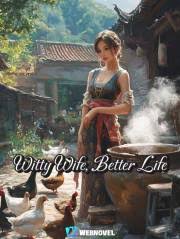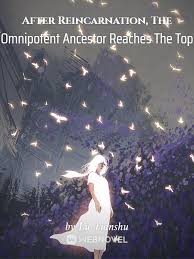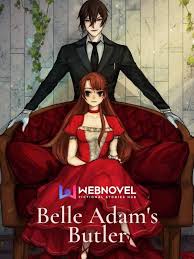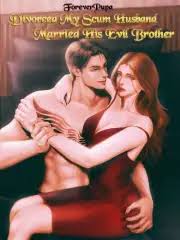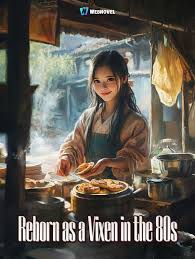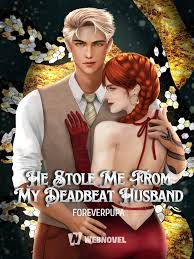The Story in 3 Sentences
A middle-aged man named Shen Feiyang dies in a car accident and wakes up reborn as Shen Yunfang, a young woman struggling to survive in China’s impoverished post-50s era.
Armed with decades of modern life experience, she navigates food shortages, family tensions, and societal constraints while building a modest but dignified life through wit, resilience, and small-scale entrepreneurship.
Her journey evolves from mere survival to shaping a better future for herself and those around her, all while maintaining her moral compass in a world that rarely rewards honesty.
Why It Stands Out
1. A Time-Traveler’s Humble Revolution
Unlike flashy transmigration tales where protagonists dominate with overpowered skills, this story roots its magic in realism—Shen Yunfang doesn’t summon dragons or overthrow regimes; she cooks better meals, trades scrap metal, and teaches children to read, turning everyday acts into quiet rebellion against scarcity.
2. Romance Without Fantasy Crutches
The central relationship develops slowly, grounded in mutual respect rather than instant attraction or dramatic rescues. Both leads carry emotional baggage from their pasts and the era they live in, making their bond feel earned, not engineered.
3. Historical Texture Over Nostalgic Gloss
The novel doesn’t romanticize the past. Hunger, cold, bureaucratic absurdity, and familial obligation weigh heavily on every character. Yet within that hardship, moments of warmth—a shared sweet potato, a repaired shoe—shine with authenticity rarely seen in urban-historical hybrids.
Characters That Leave a Mark
There’s Li Shiguo – nicknamed Goudan, he’s a local figure whose rough exterior hides a pragmatic loyalty, often stepping in when Shen Yunfang needs a trustworthy ally in village dealings .
You’ll meet Ma Huilan, who emerges as a gentle but perceptive presence; her attentiveness and rapport with children mark her as someone who understands emotional labor in a society that rarely names it .
And Shen Yingxue? They’re the one who embodies the quiet dignity of the original family—sharing cornmeal mush without complaint, yet never losing their sense of self amid collective struggle .
The Flaws Fans Debate
Readers frequently criticize the female lead for being frustratingly naive despite her supposed life experience, often lowering her guard against clearly malicious characters, which creates avoidable tension .
The male lead’s stubborn adherence to outdated family obligations—refusing to set boundaries even when it harms his relationship—draws consistent frustration, especially since solutions seem obvious to modern readers .
Some fans take issue with the protagonist “borrowing” ideas from her past life and presenting them as her own, calling it intellectual dishonesty that the narrative never seriously interrogates .
Must-Experience Arcs
Ch. 1–80: Survival in Scarcity – Shen Yunfang adapts to her new body and era, learning to forage, barter, and navigate the rigid social hierarchy of a rural commune with minimal resources.
Ch. 300–400: Building Trust – Her small business ventures begin to take root, but family interference and societal suspicion test her resolve; this arc deepens her bond with the male lead through shared vulnerability, not grand gestures.
Ch. 750–876: Legacy and Letting Go – With stability finally achieved, the focus shifts to raising the next generation, reconciling with past choices, and defining what “a better life” truly means beyond material comfort.
Killer Quotes
“Life isn’t about waiting for the storm to pass—it’s about learning to cook rice in the rain.”
“Kindness isn’t weakness when you’ve known hunger; it’s the bravest thing you can offer.”
“You don’t need a palace to build a home. You just need someone who remembers to save you the last dumpling.”
Cultural Impact
Fans have praised the novel for being one of the few completed transmigration stories that avoids power fantasies and focuses on emotional realism .
Despite translation inconsistencies and occasional name mix-ups, readers consistently finish the full 876+ chapters, a rarity in the webnovel space .
The phrase “chicken in one hand, duck in the other, baby on the back” became a meme among fans to describe resilient, multitasking women navigating chaos with humor .
Final Verdict
Start Here If You Want:
A grounded, slow-burn story where survival feels like victory and love grows through shared hardship, not destiny.
A female lead who uses wisdom over weapons, turning scrap and sweat into dignity.
Historical fiction that respects the weight of the past without drowning in despair.
Study If You Love:
Narratives that explore how ordinary people exercise agency within rigid social systems.
The intersection of gender, age, and memory in transmigration tropes—here, the “older soul in young body” isn’t played for comedy but for psychological depth.
Subtle critiques of intellectual property and cultural borrowing, wrapped in a seemingly simple domestic tale.
Avoid If You Prefer:
Fast-paced plots with clear villains and dramatic confrontations—this novel’s conflicts are interpersonal and systemic, not theatrical.
Flawless protagonists—both leads make repeated, frustrating mistakes rooted in their era’s limitations.
Stories that avoid moral ambiguity; here, even “good” choices often come with compromise or regret.
